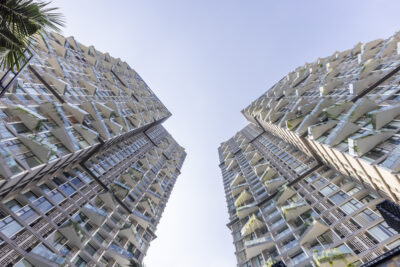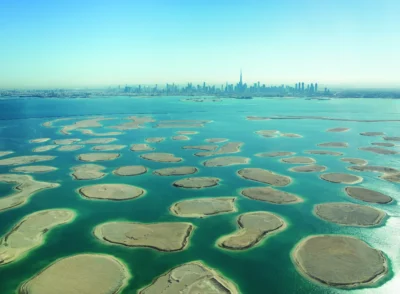Momentum builds for Australia’s commercial property market, and more news

For PropertyGuru’s real estate news roundup, Australia’s commercial property market picked up momentum in the third quarter, as offshore investors, domestic institutions, and private capital drove activity. In other headlines, Thailand’s stimulus committee is scheduled to meet later this October to discuss more measures, including those for the real estate sector. Finally, business leaders in APAC are bullish on the future, with 7 in 10 expecting their CRE budgets to increase between now and 2030.
Australia’s commercial property market picks up as deal-making soars to AUD6.2 billion
Australia’s commercial property market picked up momentum in the third quarter, as offshore investors, domestic institutions and private capital drove activity.
Real estate agency JLL said office, retail and industrial deals during the period hit AUD6.2 billion, a 40 percent increase on the figure for the same time last year. The still-hot industrial sector topped sales volumes in the quarter at AUD2.2 billion, with offices at AUD2.1 billion and AUD1.9 billion for retail.
According to realcommercial.com.au, foreign investors are driving the rebound in office transactions and accounted for two of the top three office trades in the third quarter of 2024, including German company Deka’s pending acquisition of 333 George St for AUD395 million and Hong Kong’s PAG buying 367 Collins Street for AUD315 million.
Thailand: More property stimulus could be on the way
The stimulus committee is scheduled to meet later this October to discuss more measures, including those for the real estate sector, says Deputy Finance Minister Paopoom Rojanasakul.
Mr Paopoom said in Bangkok Post that the real estate stimulus measures would target demand and supply, aiming to prod property buyers and developers to create a comprehensive impact.
He said new stimulus measures were needed because the existing ones were fully utilised.
The Finance Ministry recently utilised state financial institutions like the Government Housing (GH) Bank to support real estate stimulus.
APAC business leaders eye increased CRE investment by 2030 – JLL
Despite the challenging commercial real estate (CRE) landscape and mixed economic environment, business leaders in APAC are bullish on the future, with 7 in 10 expecting their CRE budgets to increase between now and 2030, as revealed in JLL’s Future of Work survey. The biennial, global survey explores the evolving world of work by assessing the key priorities, challenges and strategies that are top of mind for more than 2,300 business and CRE decision-makers.
“Since our 2022 survey, the CRE landscape has become increasingly complex and dynamic, evolving toward better office use. We see that in these results, and in our conversations with clients,” said Neil Murray, Global CEO, Work Dynamics, JLL in RETalk Asia. “Looking ahead, business and CRE leaders working to drive talent and efficiency throughout their organisation must consider the unique needs of their organisation, and leverage tools such as tech, AI, and upskilling, as well as strategic partnerships across the value chain to enable the CRE function to reach its full potential as a powerful agent of transformation.”
The Property Report editors wrote this article. For more information, email: [email protected].
Recommended
Dewan Architects’ Mohammed Adib leads with human-centred design and technological innovation in the Middle East and beyond
Mohammed Adib channels his childhood curiosity and dislike for design uniformity into his work at Dewan Architects + Engineers
UAE real estate shifts focus to sustainability and quality, revitalising iconic projects
The UAE has risen from its challenges to emerge as a more sustainable, quality-focused destination
Exploring A Life By Design’s maximalist approach to interior design
Andrea Savage is embracing the maximalist trend with bold and vibrant interior designs
Jakarta’s emerging innovation hub integrates tech and healthcare sectors
The Digital Hub in BSD City is being positioned as Indonesia’s counterpart to Silicon Valley








